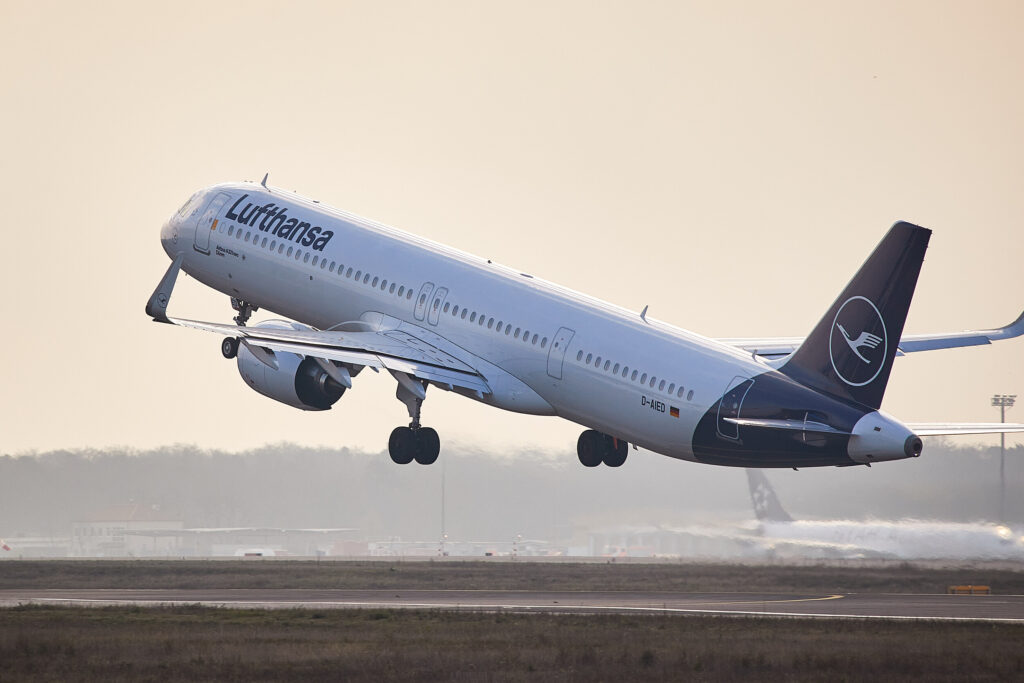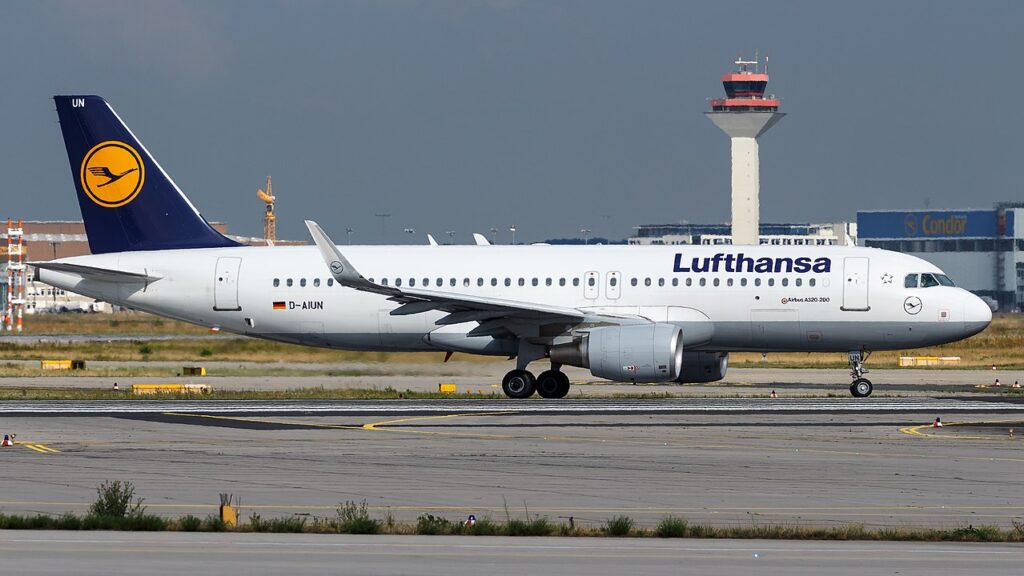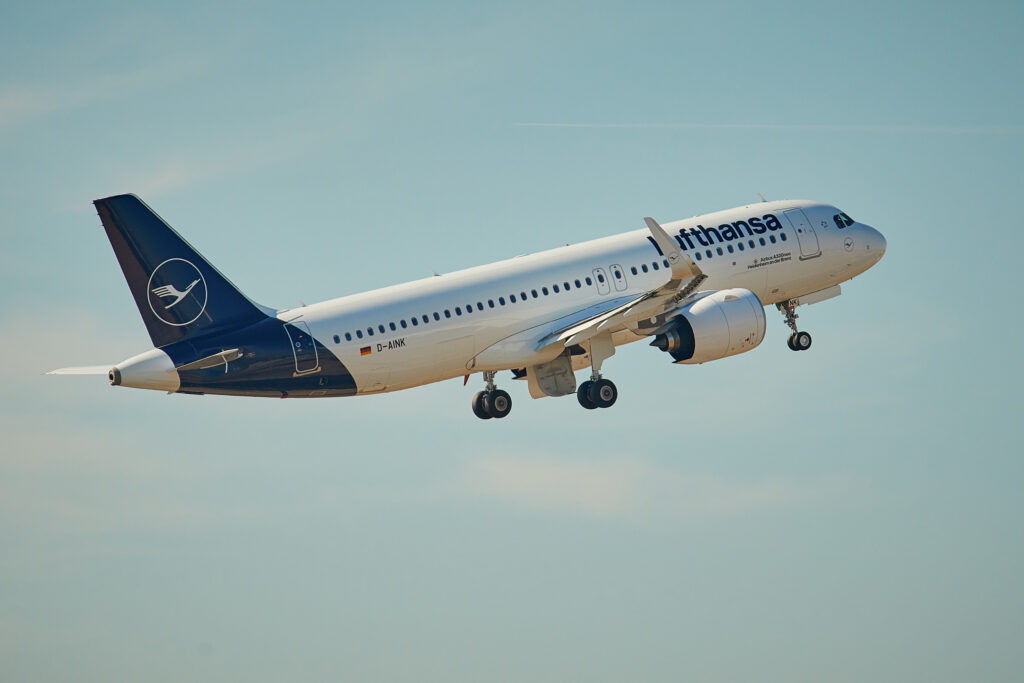GERMANY- Lufthansa (LH) Group, a pioneer in adopting new surveillance technology for sustainable flying, is set to optimize airspace management and reduce CO2 emissions with the installation of innovative flight profile information technology in its new Airbus A320neo and A321neo aircraft.
By leveraging the Automatic Dependent Surveillance – Contract Extended Projected Profile (ADS-C EPP), the airline group aims to minimize unnecessary detours and achieve more eco-friendly flights.
With over 65 Airbus A320neo/A321neo aircraft on order, Lufthansa Group plans to equip these planes with the new technology starting in 2024.

Lufthansa New Surveillance Technology
The newly introduced technology enables the automatic transmission of 4D flight path information generated by the aircraft’s flight management system to air traffic control in real-time.
This comprehensive flight trajectory, which encompasses the aircraft’s course in three spatial dimensions (length, width, height) and time, allows air traffic control to manage airspace and optimize flight routes efficiently.
Dr. Detlef Kayser, a Member of the Lufthansa Group’s Executive Board responsible for Fleet and Technology, emphasizes the airline’s commitment to sustainability.
He stated, “When it comes to using new technologies for more sustainable flying, the Lufthansa Group plays a pioneering role. That is why we have made a conscious decision to use the new technology. Subsequently, for transmitting flight path information in real-time as standard on our new Airbus A320neo/A321neo aircraft as early as 2024. This will enable our pilots to fly even more efficiently on first flights within Europe as early as next year, thus reducing CO2 emissions.”
The automated transmission of flight path information enhances the efficiency of Lufthansa Group’s flights. Further, it contributes to the modernization of EU airspace.
Initially, the ADS-C EPP-equipped aircraft will utilize the new technology in Maastricht airspace (MUAC). MUAC is the first airspace in Europe to meet all the necessary requirements.
Lufthansa Group collaborates with other air navigation service providers to expedite the adoption of fuel-efficient flying practices across numerous European airspaces. The new technology is certified for the Airbus A320 family and Airbus A330neo aircraft.

Commitment to Sustainability
Lufthansa Group has set ambitious climate protection goals to achieve a neutral CO2 balance by 2050. By 2030, the group intends to reduce its net CO2 emissions by 50% compared to 2019. Subsequently, through a combination of reduction and compensation measures.
In August 2022, the independent Science Based Targets initiative (SBTi) validated the group’s reduction target until 2030. This makes Lufthansa Group the first European airline with a science-based CO2 reduction target aligned with the goals of the 2015 Paris Climate Agreement.
To achieve effective climate protection, Lufthansa Group focuses on accelerated fleet modernization. Further on, the utilization of Sustainable Aviation Fuels (SAF), and continuous optimization of flight operations. Subsequently, providing sustainable travel options for private and corporate customers.
Additionally, the group has been actively supporting global climate and weather research for many years. Further reinforcing its commitment to environmental stewardship.
Stay tuned with us. Further, follow us on social media for the latest updates.
Join us on Telegram Group for the Latest Aviation Updates. Subsequently, follow us on Google News.

